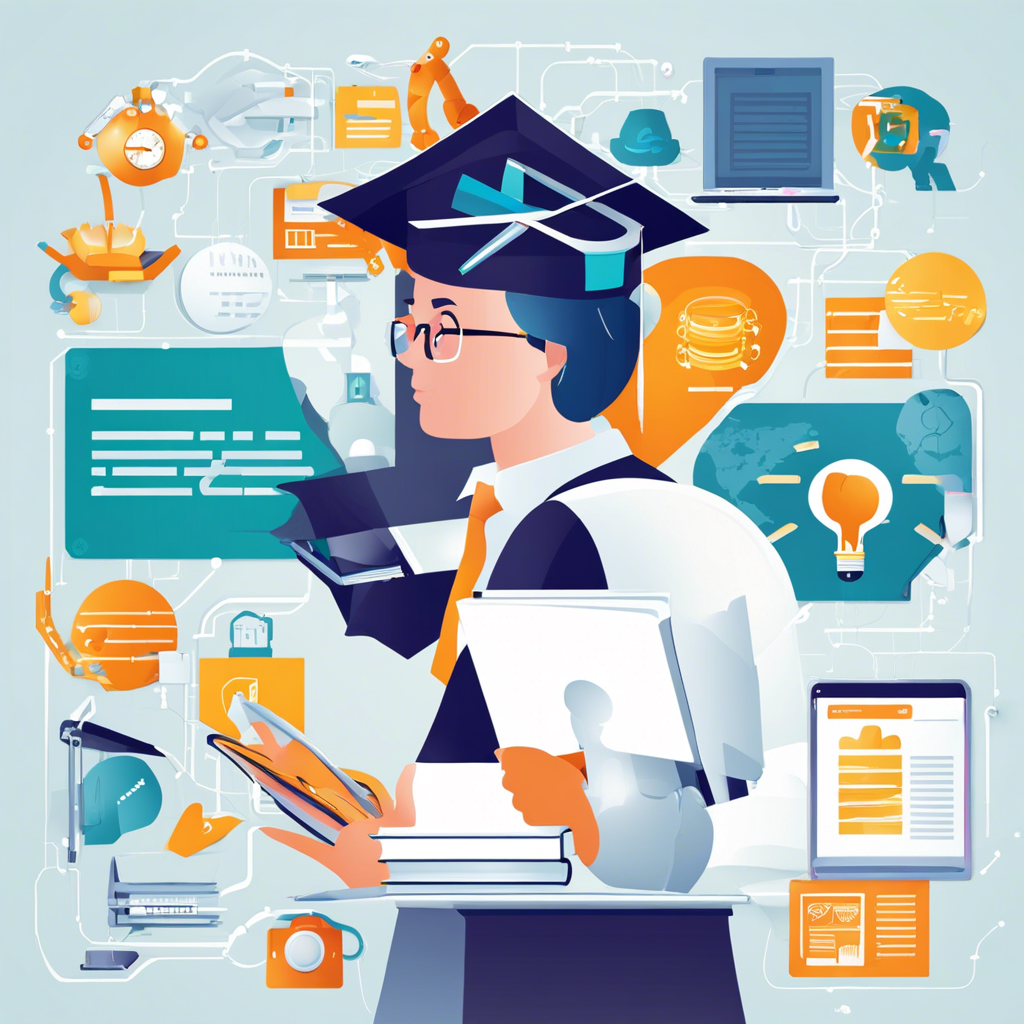# How AI in Education Is Transforming Learning Today
The world of education is experiencing a quiet revolution, and it’s all thanks to the rapid advancements and integration of artificial intelligence (AI). AI is no longer a futuristic concept; it’s already here, and it’s changing the way we teach and learn in ways we could only imagine a decade ago. With its ability to analyze vast amounts of data, automate tasks, and provide personalized learning experiences, AI is transforming the traditional education model into something more adaptive, efficient, and engaging.
One of the most exciting aspects of AI in education is its potential to personalize learning. Traditional classrooms often follow a one-size-fits-all approach, but AI-powered education tools can adapt to each student’s unique needs and learning style. These intelligent systems can analyze student performance data, identify strengths and weaknesses, and tailor educational content accordingly. For example, AI-driven platforms can provide customized lessons, quizzes, and practice exercises, ensuring that students receive the right level of challenge and support. This personalized approach not only improves learning outcomes but also keeps students more engaged, as they are learning at a pace that suits them.
Adaptive learning platforms are at the forefront of this transformation. These platforms use AI algorithms to create dynamic learning paths for students. As students interact with the platform, the AI analyzes their responses, identifies knowledge gaps, and adjusts the content in real-time. This means that if a student struggles with a particular concept, the AI can provide additional explanations, examples, or alternative approaches until the student masters the topic. Conversely, high-performing students can be challenged with more advanced material to ensure they remain stimulated and motivated.
AI-powered virtual tutors and chatbots are also making waves in the education sector. These tools provide students with immediate feedback and support, often available 24/7. Virtual tutors can guide students through complex problems, offer explanations, and provide additional resources. Chatbots, on the other hand, can answer students’ questions promptly, acting as a friendly and accessible learning companion. This real-time assistance is particularly valuable in subjects like mathematics or languages, where students often need immediate clarification or additional practice.
Moreover, AI is making education more accessible and inclusive. For students with disabilities or special needs, AI-based tools can provide invaluable support. Text-to-speech and speech-to-text technologies, for instance, can help visually impaired or dyslexic students access educational materials and communicate more effectively. Additionally, AI-powered language translation tools are breaking down language barriers, enabling students from non-English speaking backgrounds to participate more fully in classroom activities and online learning resources.
In higher education, AI is revolutionizing research and knowledge discovery. AI-powered search engines and research assistants can sift through vast amounts of data and literature, helping students and researchers find relevant information quickly. This not only saves time but also opens up new avenues of exploration, as these tools can uncover hidden connections between different research fields and ideas. Imagine a student working on a complex research project, with AI helping them navigate through a sea of data, making their exploration more efficient and insightful.
But AI in education isn’t just about students; it’s also transforming the role of teachers. AI tools can take over time-consuming tasks like grading multiple-choice tests or basic essays, freeing up teachers’ time to focus on more complex and creative aspects of teaching. This allows educators to provide more individualized attention, mentor students, and develop innovative lesson plans that incorporate AI-supported learning activities. The shift towards a more collaborative role between teachers and AI can lead to a more fulfilling and effective teaching experience.
Collaboration between AI and educators is also enhancing the assessment process. AI can provide detailed analytics on student performance, enabling teachers to identify areas where the entire class may be struggling and adjust their teaching methods accordingly. This data-driven approach to assessment provides a more comprehensive understanding of student learning, allowing teachers to design interventions and support systems to improve overall academic outcomes.
However, the integration of AI in education also comes with its own set of challenges. One of the primary concerns is ensuring that the use of AI in schools and universities is ethical and responsible. Protecting student privacy and data security is paramount, and educational institutions must implement robust data protection measures. Additionally, there is a need for transparency in how AI systems are used, and students should be made aware of the role AI plays in their education.
Another challenge lies in ensuring that AI tools do not replace human teachers but rather enhance their role. While AI can automate certain tasks and provide valuable support, the human element in education is irreplaceable. Teachers bring empathy, creativity, and critical thinking skills that are essential for a well-rounded education. The goal should be to create a symbiotic relationship between AI and teachers, where technology supports and augments human capabilities.
As AI in education continues to evolve, ongoing training and professional development for teachers will be crucial. Educators need to be equipped with the skills and knowledge to effectively integrate AI into their teaching practices. This includes understanding the capabilities and limitations of AI tools, learning how to use them effectively, and staying updated on the latest advancements in educational technology.
In conclusion, AI in education is not just a trend or a buzzword; it’s a transformative force that is reshaping the way we educate and learn. From personalized learning experiences to accessible resources and enhanced teacher capabilities, AI is unlocking new possibilities. As we embrace this technology, it is essential to do so with caution and a clear understanding of its ethical implications. By striking the right balance between human expertise and AI assistance, we can create a future where education is more inclusive, engaging, and effective than ever before. The journey of AI in education has only just begun, and the potential for further innovation and positive impact is limitless.

